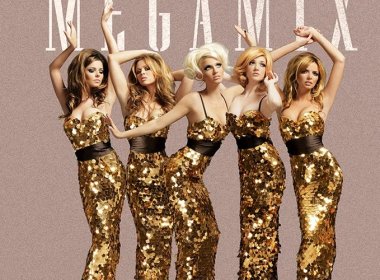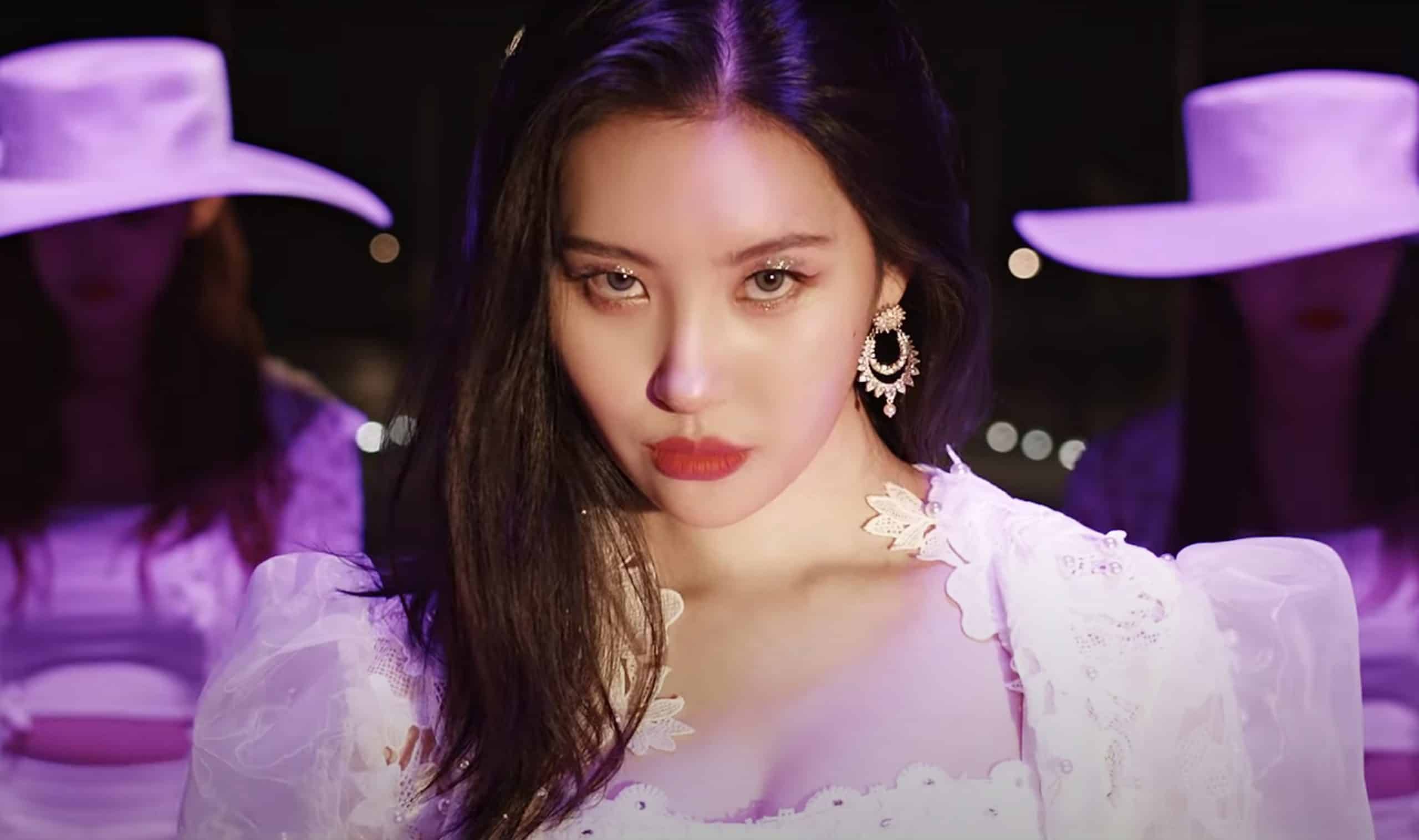Another day, another drama…
In helping to celebrate Blackout Purchase Week (have you entered the MuuMuse giveaway yet?), MuuMuse is proud to present “Blackout Once Again: A Look Back at Britney Spears’ Greatest Album,” an incredibly comprehensive, in-depth examination of Britney‘s fifth studio album, written by Vertigo Shtick‘s David Salter.
If there’s anything to be said about Blackout, it’s featured here in this extraordinary piece. A must read, Muusers!
Please click “Read More…” to see the full article. (MOAH!)
—
by David Salter
Blackout was an uncomfortable record to approach in 2007.
Britney Spears was struggling. She had ceased to be a product and had grown into an actual person, with inherent flaws and unpredictability magnified and influenced by the 24-hour surveillance of a newly digital world. Her last record, In the Zone, was over three years old, its momentum halted by a knee injury, a pair of marriages, one annulment and one divorce, two children with ex-husband Kevin Federline, two stays in rehab, and one drastic makeover in a Tarzana hair salon. Spears’ comeback performance at the 2007 MTV Video Music Awards was an unqualified disaster, handily erasing what remained of the icon’s sex appeal. Two months after Spears’ fifth studio album Blackout dropped, so did Spears: the former Mouseketeer was committed to UCLA Medical Center under an involuntary psychiatric hold.
Amid the throes of a dramatic celebrity breakdown, how is it that Britney Spears produced not just the best album of her career, but one of the best albums of the past decade? This superlative is not of my own creation, nor is it a new suggestion: upon Blackout‘s release, several of the more distinguished critics of popular music, who tend to be dismissive of if not outright hostile toward mainstream pop, quietly delivered lofty praise on Spears and Blackout, not without obvious bemusement. NPR, defending its decision to even review Blackout, simply stated, “it is, against all odds, a good album;” Rolling Stone named it one of the top albums of 2007; and Pitchfork, the crème de la crème of academic music snobbery, called Blackout an “extraordinary album” of “superb modern pop.” The majority of mainstream critics found the hullabaloo of Spears’ meltdown too distracting to deliver much useful insight, and so either dithered about the shallow carnality of the lyrics, Spears’ lack of writing credits, or the disconnect of Spears’ reality from the album’s sexuality, or Spears’ supposed uselessness on “a producer’s showcase.”
Now that Blackout exists comfortably in Spears’ ongoing discography, a critical look at the album from 2011 reveals more about what makes it a milestone. Blackout was among the first pop records to embrace and envelop itself in the four-to-the-floor, 120 BPM European dance style that is now all but the norm. More influential still, and most controversially, Blackout is an unapologetic acknowledgment of the role of the machine in pop music, and it unabashedly explores the possibilities of electronic vocal manipulation as a musical idea, yet without sacrificing the humanity, personality and identity that uniquely separates the human voice from any other instrument, corporeal or digital.
Britney Spears music is always a team effort, and Blackout has one of the best. The credits read like a roll call of 2011 pop music all-stars. Primary production duties are split between Nate “Danja” Hills, a Timbaland disciple, and the Swedish dance/electronica production duo Bloodshy & Avant, the team behind Spears’ Grammy-winning hit “Toxic.” Though their tracks have little to no overlap in personnel aside from Spears, it can be difficult to discern with certainty which tracks belong to which, a feat considering they approach the project from entirely different backgrounds. Other collaborators include Keri Hilson, T-Pain, the Teddybears‘ Klaus Ahlund, Kara DioGuardi, Pharrell Williams and even Swedish pop icon Robyn. Directly, their work on Blackout helped launch Hilson’s and T-Pain’s successful solo careers and led DioGuardi to American Idol, and it helped bankroll Ahlund and Robyn’s global conquest with the 2010 album Body Talk. Indirectly, the project this team created was a major pioneer of the sound that has come to dominate pop music and allow Hilson, T-Pain, and Robyn to break through for themselves.
Years before Spears jump-started the integration of dubstep into pop with “Hold It Against Me,” the wobbling bass and syncopated, shuffling beat was on full display on “Freakshow.” The shimmering synthpop and deeply layered trance and new wave electronica that Ke$ha, Kylie Minogue and Owl City have lately peddled to the top of the charts is the basic musical thesis of “Heaven on Earth” and “Ooh Ooh Baby.” “Get Naked (I Got a Plan),” with its careening funhouse mirrors of production and vocal trickery, is an ancestor to the cagey electronic experiments of Lady Gaga, Ke$ha and even Chris Brown. A year or two ago, “Hot As Ice” could have been a companion piece to T-Pain’s “Buy U A Drank” or The Black Eyed Peas‘ “Rock That Body.” Spears’ camp certainly noticed Blackout‘s time-release properties when it re-released “Radar” as a bonus track and eventual single off Circus, and the setlist for her 2009 tour The Circus Starring Britney Spears featured as much music from Blackout as from its successor.
So, if Blackout exemplifies the form, excels at the style, and serves its place in music history, what about that final element, content? First let us remember the paradox of pop songwriting: beware ye, for here there be metaphors – sometimes. We do not dwell in a factual submarine painted yellow, but sometimes a rose is just a rose. Britney Spears, like any great pop artist, is a master of ambiguity, so find meaning hidden in the libretto if you like; no one’s going to correct you, but no one’s going to spell it out for you either. The Neptunes-produced closer plays as a farewell to the Federline fiasco, but when Britney sings –
I sent you to Vegas with a pocket full of paper
And with no ultimatums on you
I thought “What could separate us?”
But it just seemed like Vegas
Only brought the player out of you
Couldn’t the veteran of the Vegas wedding and annulment also be singing about herself?
There’s no doubting the autobiographical intent of “Piece of Me,” which may not be written by Britney Spears but it’s about her and for her and that’s about as autobiographical as pop gets. Then again, there’s the joke inlaid therein: it isn’t actually Britney singing the warped “You wanna piece of me?” on the chorus – it’s Robyn. Talk about a middle finger to the paparazzi! Other hints at self-awareness (“Imagine if I worked out!” she deadpans on “Get Naked (I Got a Plan)”) intermingle with postmodern asides drawing attention to the trickery at work (announcing “I like this part!” on “Break the Ice,” or ending an melismatic improv session on “Heaven on Earth” with (still singing) “I’m done…”). Britney didn’t just “drop in” on this record: she’s all over it, inside the pipes, and whispering and laughing under the hum of the machine.
Revisiting this magnificent record, one question lingers: wherefore “Blackout?” Britney Spears’ album titles are usually straightforward: either the title stems from one of the hit singles, or one look at the album cover and all is explained. Not so Blackout, aside from the uncharacteristic hair color, and that’s pretty weak even during a meltdown. But it’s not called Meltdown, or Breakdown (the latter might have worked but not classily); it’s not Piece of Me (Pieces of Me was taken?), or Gimme More (see uncertain career longevity in 2007), or Break the Ice. I remain uncertain, but I have a couple ideas as I wrap this up.
If Blackout makes a statement, it is that this is the way Britney Spears’ music is going to work from now on. She’s not going to sing goopy ballads about nothing, or play out her personal life in her lyrics – she may hint here and there, but the paparazzi have done enough prying, and she’s not offering anything more. If you want more, she’ll give you more – by throwing her experience, star power, creativity and money into creating sounds that she thinks are fun, exciting, and new. Femme Fatale is exactly that, and anyone who still doubts Britney’s influence or musical coherence is fooling himself. It’s Britney sneaking dubstep into the mainstream and steering the trance-pop vessel into port; Britney who’s messing with electronica and vocal manipulation and seeing where technology can take pop and dance music. It’s Britney, bitch. It’s what her current single “I Wanna Go” is really about, don’t you see? For those looking for warmth and sunshine, this can seem a bit cold. “Lucky” is gone; the peepshow is over. To an audience scarfing down every last emotion from a heartbroken 21 year old British gal so it can process its own, I can see how this could resemble some sort of blackness.
Now and then, I enjoy an old-fashioned practice wherein I listen to an entire album from beginning to end, no skipping or stopping, like a movie in a theater. As with movies, with a really good album it is possible, even fun to do this more than once. Blackout is one of the few full length LPs that I can listen to from end to end, even without suffering through one or two rough bits for the greater good. I confess that I had never done this, however, until just a few weeks ago. The first time felt like seeing David Lynch‘s Mulholland Drive: I emerged thrilled, off-balance, certainly unnerved, yet somehow ultimately uplifted by the process. It’s easy, too, to get sucked back into Blackout, those great opening singles as friendly and comfortable as Naomi Watts in a cute apartment…and suddenly Danja cackles and the uneasy stumbling beat of “Get Naked” starts in, and there’s no escape until the end – it’s blackout once again.
David Salter is a writer from California. For more of his writing, please visit his website, Vertigo Shtick.







